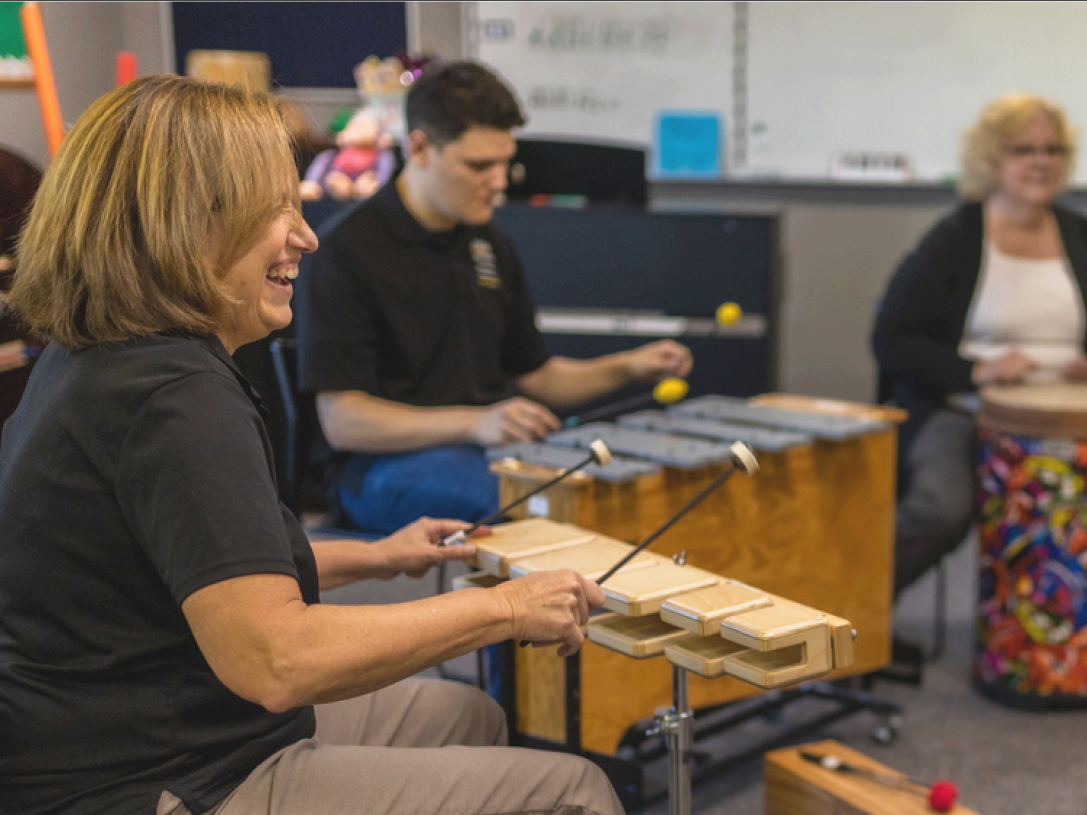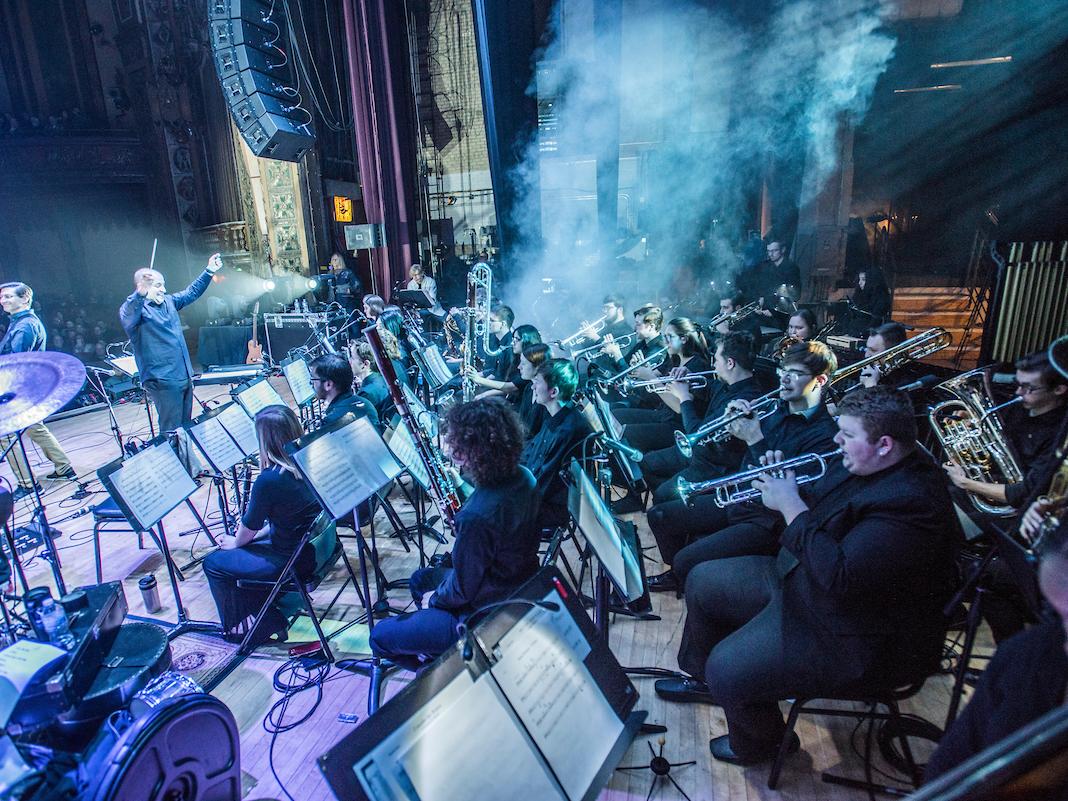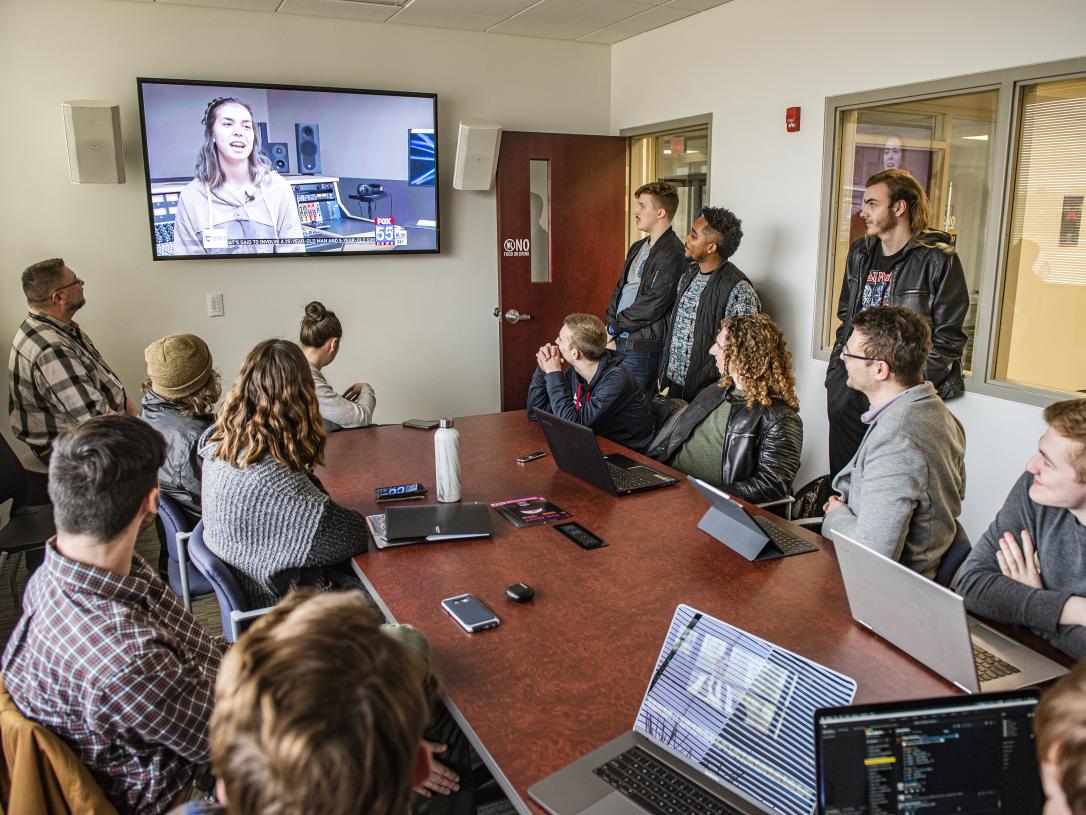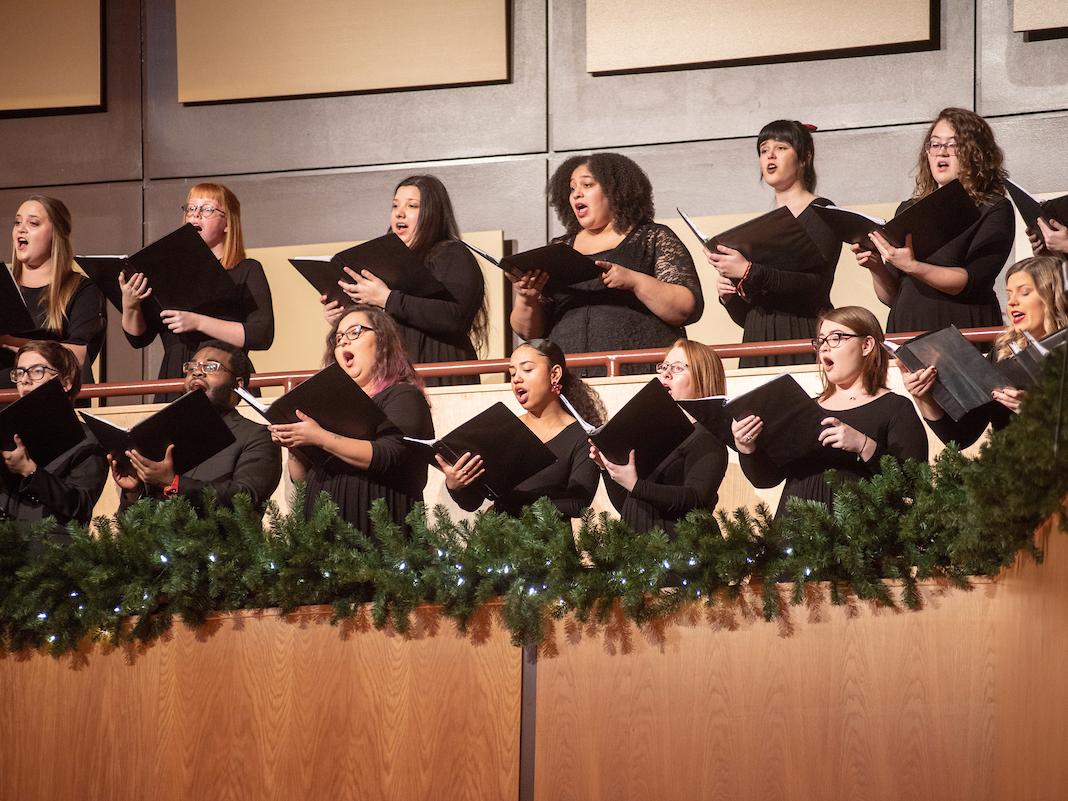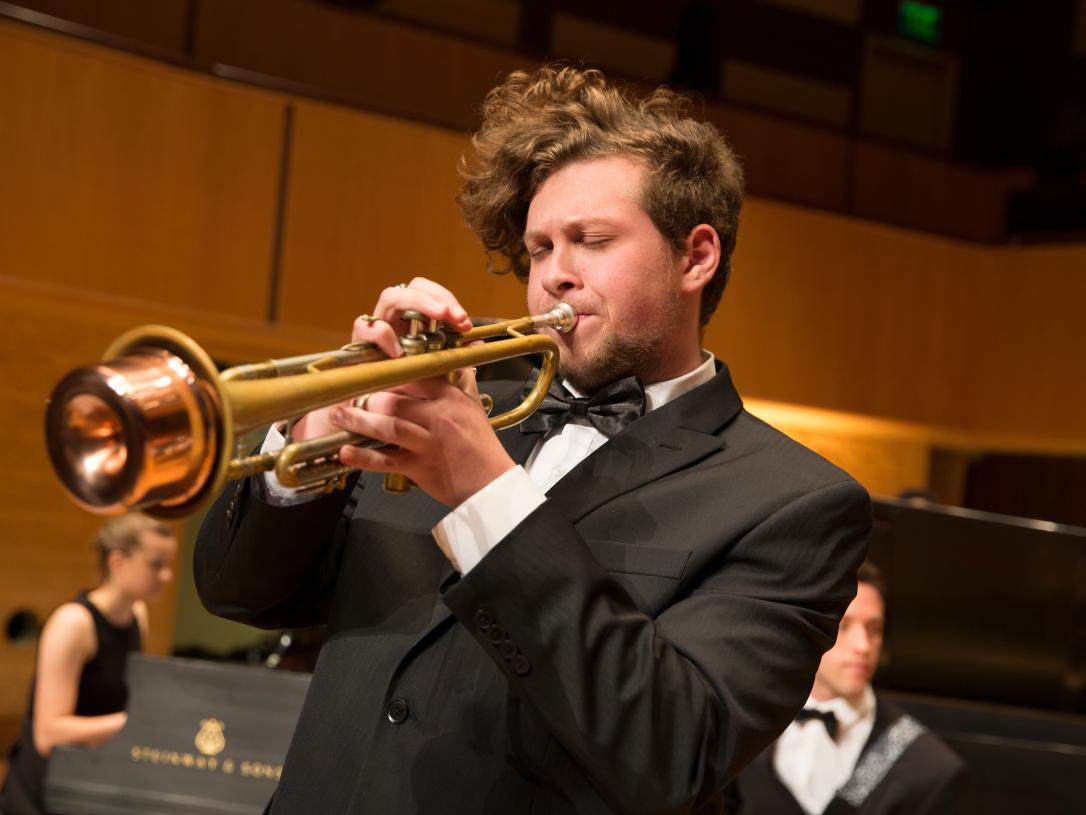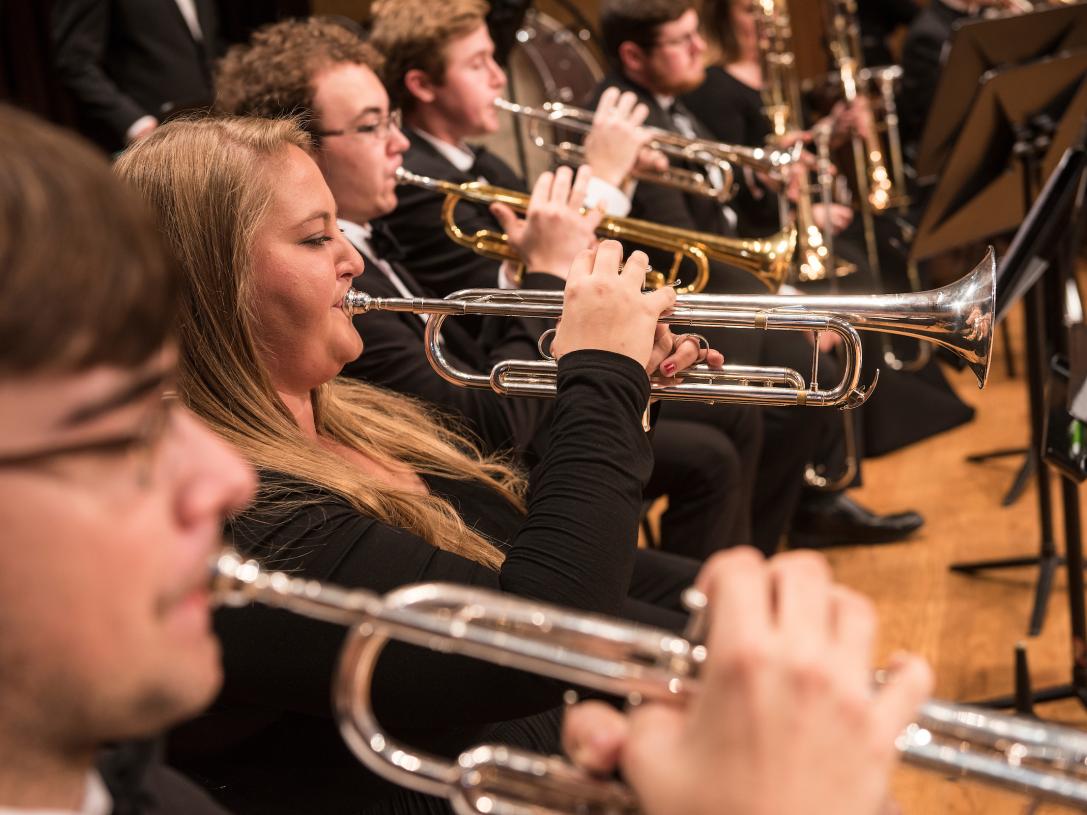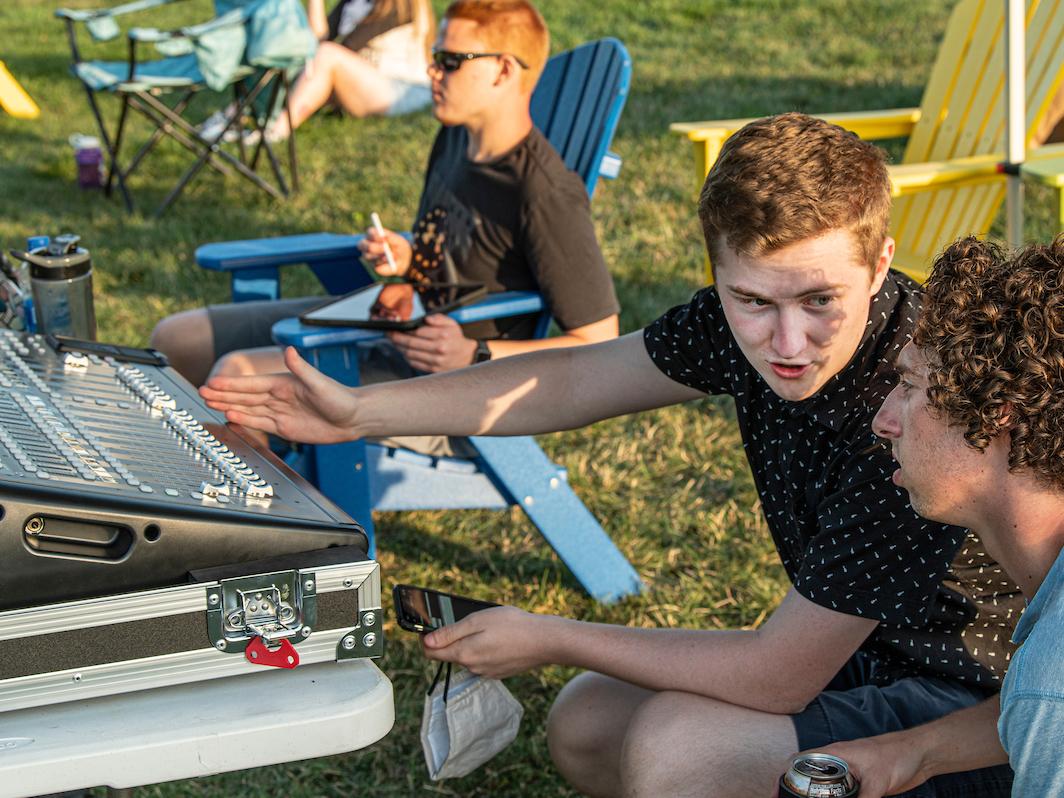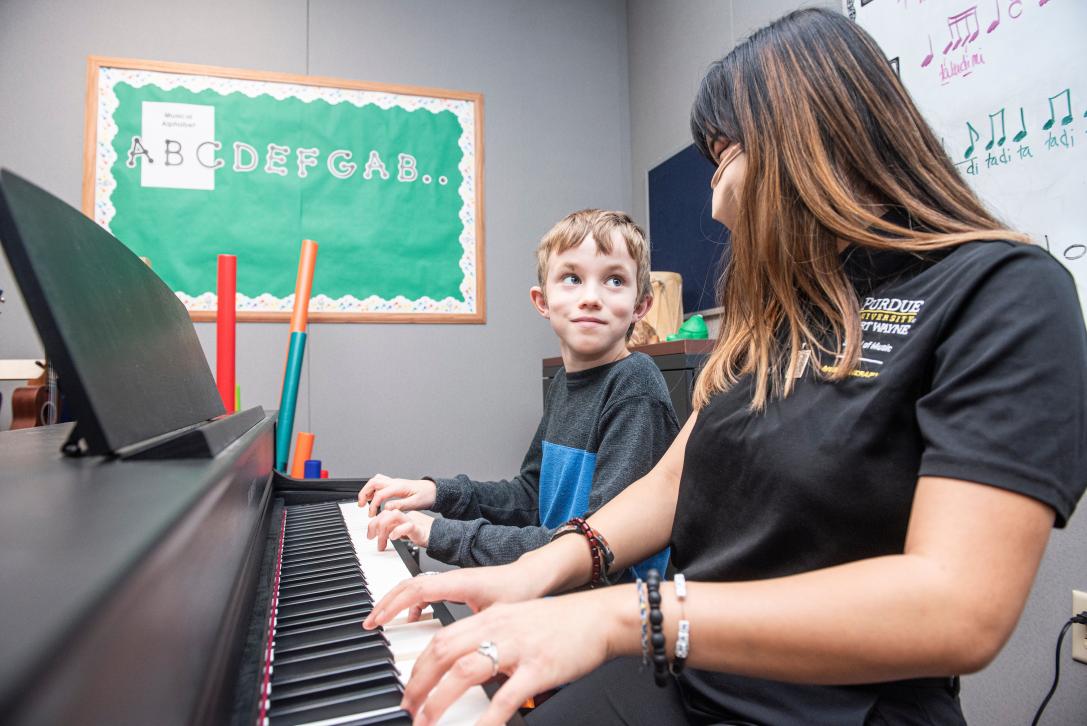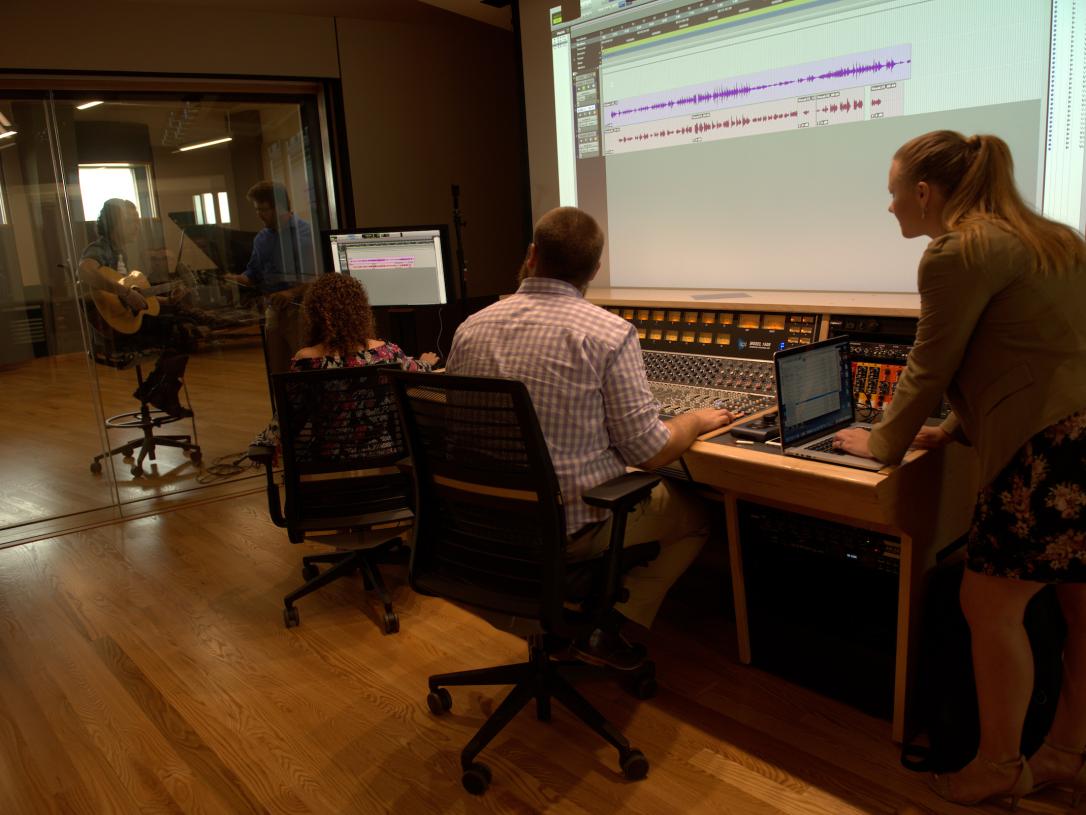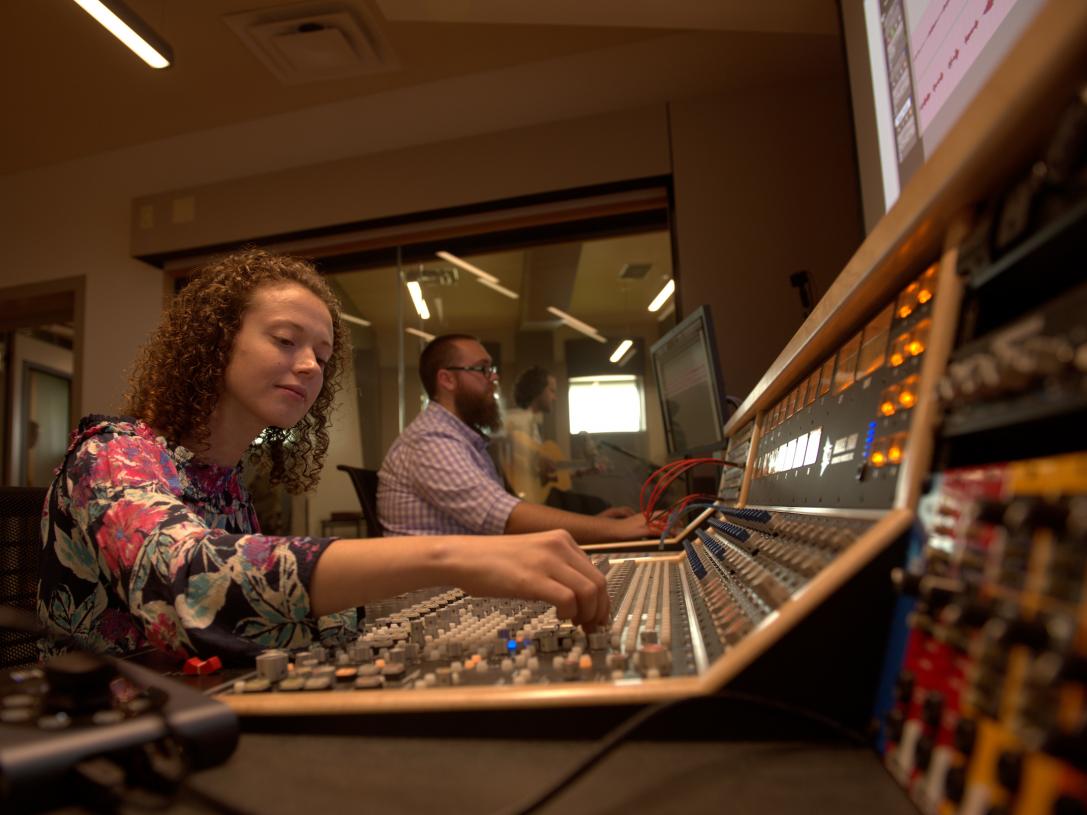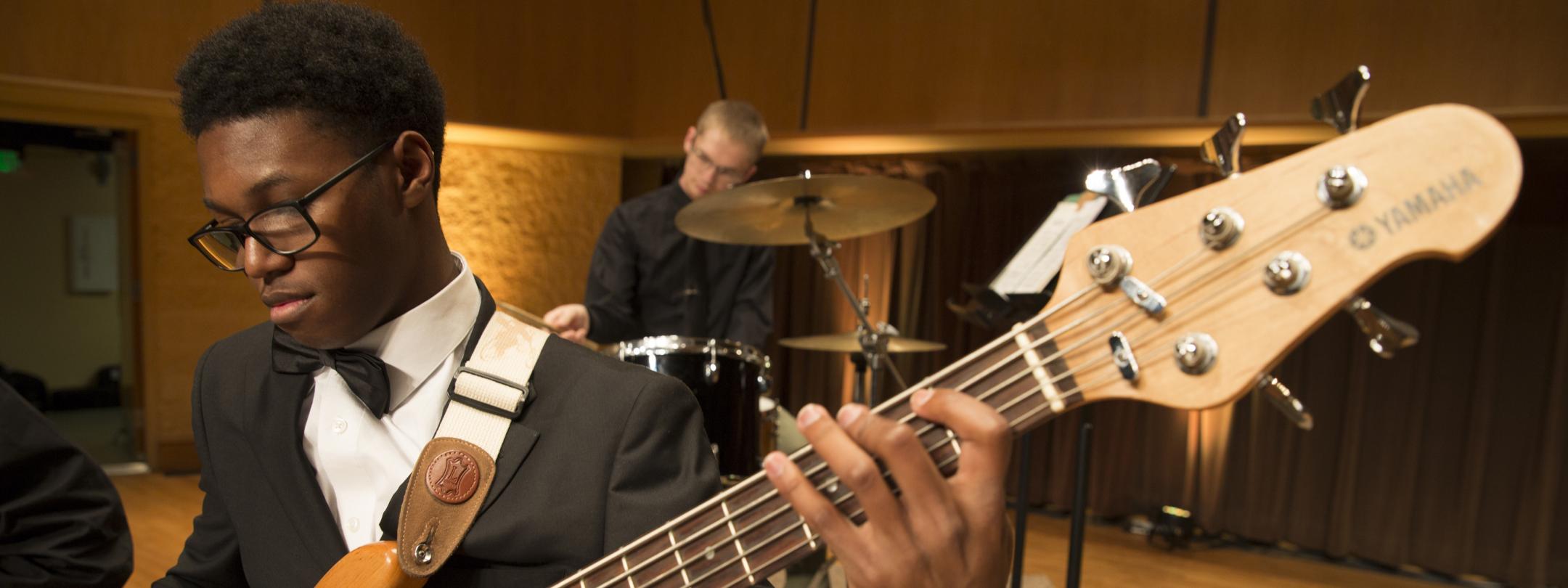
Music Programs
This is where musicians become everything they’ve dreamed.
Our degrees span all music professions, from education to performance to therapy. We also have minors in music and jazz studies.
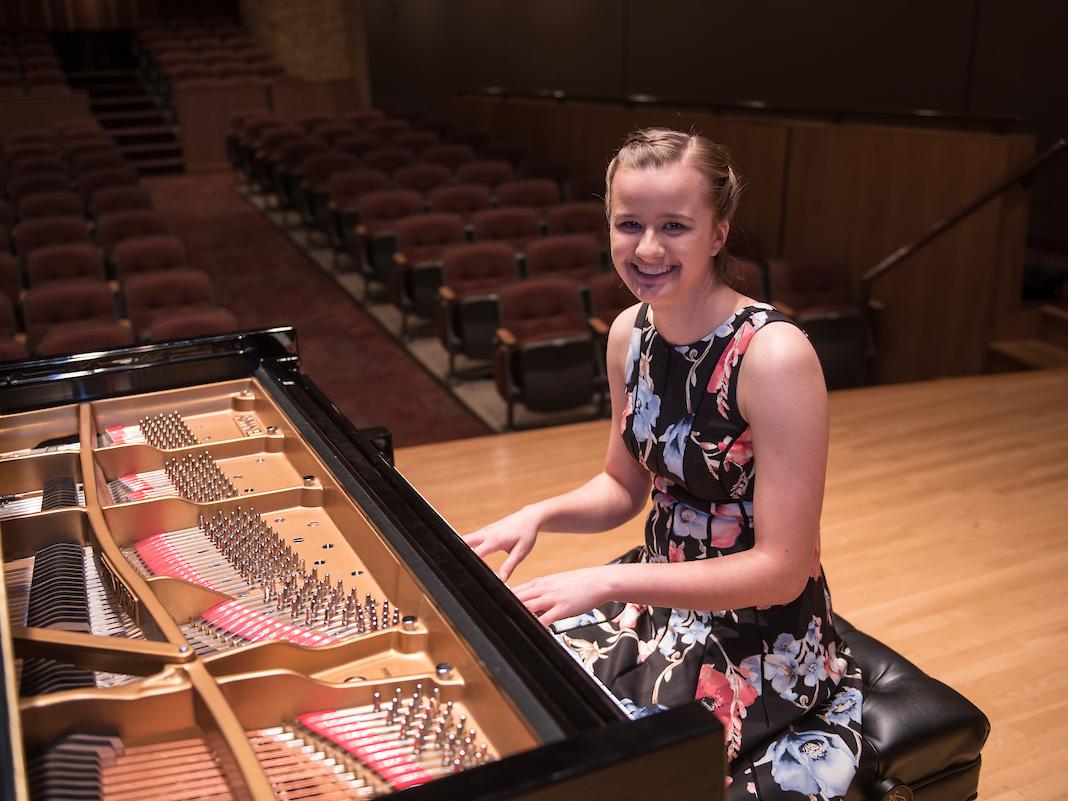
Music Education (B.Mus.Ed.)
It takes musicians like you to teach the musicians of tomorrow. Use your gift to inspire and train the next generation of music makers.

Program
Highlights
Program Highlights
- Mentoring from experienced professionals
- Support from the Mastodon community
- A prestigious Purdue degree
career and salary data
How far will you go?
General labor market and salary data are provided by Lightcast via O*NET and may not represent the outcomes experienced by Purdue Fort Wayne graduates in these programs. Purdue Fort Wayne graduates in these programs may earn salaries substantially different or less than the amounts listed. Salary and employment outcomes vary by geographic area, previous work experience, education, and opportunities for employment that are outside Purdue Fort Wayne’s control. Purdue Fort Wayne does not guarantee employment placement, salary level, or career advancement.
Accreditation
Purdue University Fort Wayne is an accredited institutional member of the National Association of Schools of Music and the American Music Therapy Association.
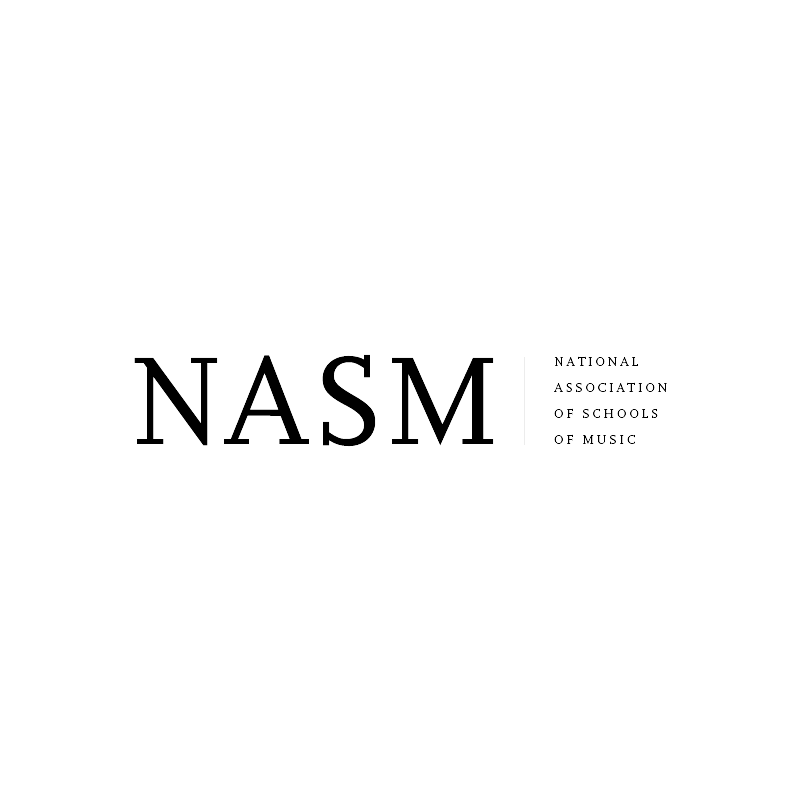
Student Learning Outcomes
Upon completion of this degree, students will be able to demonstrate the following learning outcomes:
- Mastery of skills needed for high quality music teaching and performing
- Collaborate and engage with diverse learners and communities
- Think and reflect critically on varied pedagogical approaches
- Identify and implement creative musical experiences for 21st-century learners
- Exhibit professionalism that elevates the value of music education
- Knowledge of music education history, philosophy, methodologies, and repertoire, and their ability to apply musical and pedagogical knowledge to the pre-K–12 classroom setting; upon completion of the coursework and student teaching, students are prepared to apply for state license in pre-K–12 choral/general music or pre-K–12 instrumental/general music
Upon completion of this degree, all School of Music students will be able to demonstrate the following learning outcomes:
- Knowledge of music theory sufficient to analyze musical forms, structures, and styles to create within basic musical structures; and to relate theoretical concepts to sound
- Performance ability as ensemble members, as conductors, and as soloists on both a primary instrument and a secondary instrument
- Knowledge of history and literature of Western and non-Western music, with an understanding of the social, political, and cultural impacts that shaped music history
- Proficiency in utilizing appropriate technology to notate and create music, to investigate and report scholarly research, and to support the specific demands of the professional degrees
- Band or Choral Director
- Conductor
- Teacher
